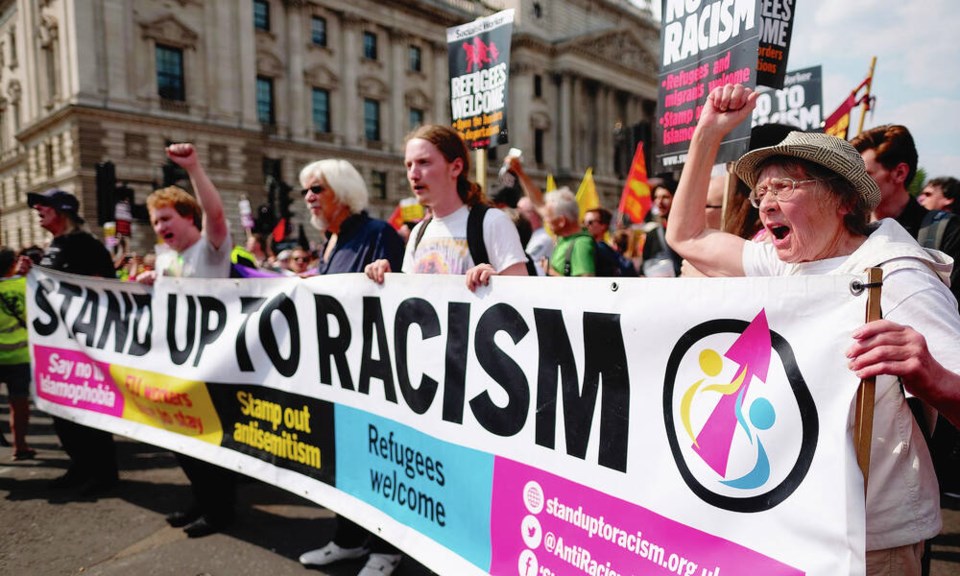Recently, on a work trip, I flew into Prince George. My colleague and I took a taxi to the hotel and made some small talk with the taxi driver.
As we passed a restaurant, he mentioned that he’s also a driver for DoorDash and has picked up several orders there. We mentioned we hadn’t eaten dinner yet.
In the morning, we were in the lobby of the hotel waiting for a taxi, and a DoorDash driver walked past us.
“Hey, that’s the same guy who drove the taxi last night,” said my colleague, who is also a longtime friend.
I didn’t recognize him as the driver and wasn’t paying too much attention.
I thought to myself: “Is she being racist?”
The taxi driver and the DoorDash delivery person were both South Asian. I did not notice if it was the same person or not. I just assumed my friend was wrong in her assumption.
My friend is white with blue eyes and blond hair.
I didn’t say anything at the time.
Another friend of ours was on the trip, hired for videography. He joined us for the last couple of days.
We had dinner in the hotel restaurant and our server was an Asian woman.
The next day we went out for sushi before heading back to the airport. As we walked into the sushi restaurant, the videographer turned to us and said: “I think the server is the same person who served us last night.”
Again, I hadn’t noticed and I thought to myself: “Is he being racist? Can he be racist in this situation if he is Korean?”
As we sat and ate, I mentioned both of these instances to my friends in a friendly manner.
The videographer then asked the server if she worked at the hotel.
“Yes, I served you dinner last night and you said you were leaving today,” she replied.
I then apologized to both of my friends. If one was correct, the other could have easily been correct too.
It was my own bias and judgment that showed, and ultimately, the most inappropriate part of both situations was me.
As we chatted further about it, my blond friend said: “Did you notice that I am the only person that the sushi waitress asked if I needed a fork?”
Interesting that as hard as we try to be inclusive and respectful, and sometimes helpful, it can come across as rude, or biased, or stereotypical.
In this situation, I never openly criticized my friends for their comments, but internally I did.
There’s an old saying that if you point a finger, there are four more pointing back at you. And in this situation, those fingers were pointing at me.
There’s a lot of talk about unconscious bias and working to address it. When I find moments like this that demonstrate my own bias, I see it as a positive moment for growth.
Sharing our learning, and sometimes our shortcomings, can aid others in doing the same. Far too often we spend time judging the actions of those around us, and not enough time reflecting on our own actions and thoughts.
>>> To comment on this article, write a letter to the editor: [email protected]



